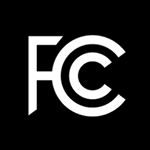Watchdog Commercial Alert has been trying to get both the FTC and FCC to come up with new rules governing the advertising practice of product placement. The group taking a wide-ranging cross-media approach to the topic, and according to one report, the FCC may be ready to open an NPR on the topic.
"We’re running a campaign to require disclosure of product placement in all media, including TV, movies, videos, video games, books and ‘adversongs,’" says Commercial Alert, which fired off a letter back in 2003 on the topic. The FTC, in a 2/10/05 reply, declined to do anything more than follow its existing case-by-case protocols. In an example, it saw no problem with judges on "American Idol" drinking out of Coca-Cola-labeled containers, since they made no comments about the quality of what they were drinking, and would therefore not require any special disclosure of a business arrangement between the soft-drink manufacturer and the network.
FTC did find a problem with a 30-minute infomercial that purported to be an investigative report but was in fact a commercial for a specific product.
The FCC has still not responded to its letter, says Commercial Alert. But a report at tvweek.com notes that the FCC was prepared to put the issue on the table back during the 12/18/07 open meeting, tabling it due to a full agenda, and is now ready to try again. It is expected that FCC Chairman Kevin Martin (R) will join with Michael Copps (D) and Jonathan Adelstein (D) in moving the ball forward. The likely votes of the remaining two Republicans, Deborah Taylor Tate (R) and Robert McDowell (R) are unknown.
RBR/TVBR observation: The FTC noted Commercial Alert’s request that a product placement event we noted prominently with the word "ADVERTISEMENT" scripted onto the page. We aren’t quite sure how you’d work disclosure into an adversong playing on a radio station somewhere. Perhaps you have to have a disclaimer, like "the second stanza was brought to you by Product X, and the modulation during the bridge was sponsored by Service Z." And if Product X happened to be a pharmaceutical, both video and audio services would have to work in a standard disclaimer on side effects and whatnot. It would probably drive sales departments right back into the business of selling spots.




